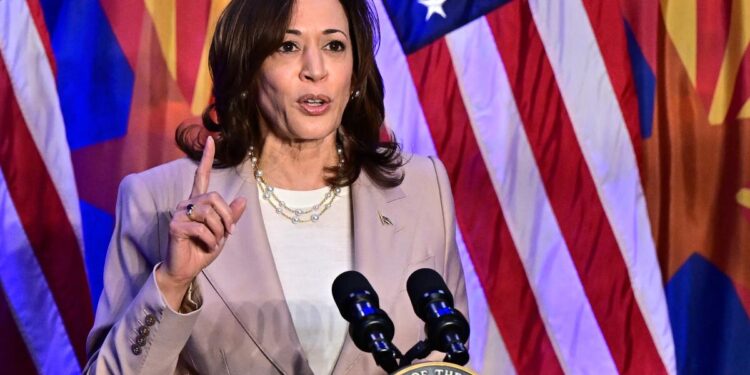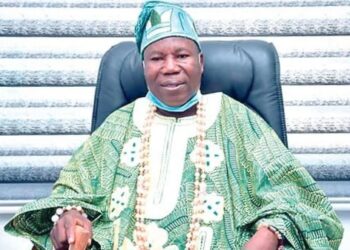Kamala Harris represents a pivotal figure in American politics, embodying a rich tapestry of cultural heritage and academic excellence. Born on October 20, 1964, in Oakland, California, Harris is the daughter of Shyamala Gopalan, an Indian cancer researcher, and Donald Harris, a Jamaican economist. This unique blend of Indian and Jamaican roots has significantly influenced her worldview and approach to public service.
Harris’s upbringing in a diverse community in Oakland exposed her to a variety of cultural experiences and social issues from an early age. Her mother, a civil rights activist, was a profound influence, instilling in her the values of justice and equality. Harris often recounts attending civil rights marches and community meetings with her mother, experiences that ignited her passion for activism and public service.
Her academic journey is equally impressive. After graduating from Westmount High School in Quebec, Canada, Harris attended Howard University, a historically black university in Washington, D.C. At Howard, she majored in political science and economics and was involved in numerous extracurricular activities, including the debate team and the Alpha Kappa Alpha sorority. This period was formative, solidifying her commitment to public service and leadership.
Following her undergraduate studies, Harris pursued a law degree at the University of California, Hastings College of the Law. Her time at Hastings further honed her legal acumen and prepared her for a career in law and politics. She served as the president of the Black Law Students Association and was an active participant in various initiatives aimed at addressing social justice issues.
Kamala Harris’s diverse background and rigorous academic training have been instrumental in shaping her identity and career. Her journey from Oakland to the corridors of power in Washington, D.C., is a testament to her resilience, intellect, and unwavering commitment to justice and equality.
Kamala Harris: Political Career and Achievements
Kamala Harris’s political journey began with her election as District Attorney of San Francisco in 2003. During her tenure, she focused on combating gang violence, drug trafficking, and sexual abuse. Harris introduced the “Back on Track” program, which aimed at reducing recidivism by providing first-time drug offenders with the opportunity to earn a high school diploma and secure employment.
In 2010, Harris was elected as the Attorney General of California, becoming the first woman and the first African American to hold the position. Her tenure was marked by significant achievements in criminal justice reform. She championed the “Open Justice” initiative, which brought transparency to the criminal justice system through data-driven approaches. Harris also took a strong stance on environmental issues, fighting against corporate polluters and advocating for climate change policies.
Kamala Harris was elected as a U.S. Senator from California in 2016. In the Senate, she continued to focus on issues related to criminal justice reform, immigration, and healthcare. Harris was a vocal advocate for the DREAM Act, which aimed to provide a pathway to citizenship for undocumented immigrants brought to the U.S. as children. She also co-sponsored the Medicare for All bill, underlining her commitment to ensuring accessible healthcare for all Americans.
Harris’s legislative efforts extended to women’s rights as well. She introduced the Maternal CARE Act to address racial disparities in maternal health and was a staunch supporter of the Paycheck Fairness Act, which aimed at closing the gender pay gap.
The pinnacle of Kamala Harris’s political career came in 2020 when she was elected as the Vice President of the United States. Her election was historic, making her the first female Vice President, the highest-ranking female official in U.S. history, and the first Black and South Asian person to hold the office. Harris’s tenure as Vice President is marked by her ongoing commitment to justice, equality, and the betterment of American society.
Challenges and Controversies
Throughout her illustrious career, Kamala Harris has faced a multitude of challenges and controversies that have shaped her journey in the political landscape. One of the primary areas of contention has been her record as a prosecutor. During her tenure as the District Attorney of San Francisco and later as the Attorney General of California, Harris was often criticized for her tough-on-crime policies. Critics argued that some of her prosecutorial decisions, such as the truancy initiative aimed at reducing school absenteeism, disproportionately affected minority communities.
In addition to her record as a prosecutor, Harris has also faced scrutiny over her stance on various policies. For instance, her initial opposition to the legalization of recreational marijuana in California and her subsequent support for it has sparked debates about her consistency on key issues. Similarly, her healthcare policy proposals have attracted both praise and criticism. While some commend her for advocating a more inclusive healthcare system, others have questioned the feasibility and potential economic impact of her plans.
Moreover, as the first female Vice President of the United States and the first woman of Black and South Asian descent to hold this office, Harris has been under intense public and media scrutiny. This scrutiny has often extended to her personal life, with critics questioning her authenticity and political ambitions. Despite these challenges, Harris has demonstrated resilience and an ability to adapt to the evolving political climate.
It is essential to acknowledge the obstacles Kamala Harris has overcome while also recognizing the criticisms she has encountered. These challenges and controversies highlight the complexities of her career and the multifaceted nature of political leadership. By addressing these issues, we gain a more comprehensive understanding of Kamala Harris as a pivotal figure in American history.
Impact and Legacy
Kamala Harris’s career represents a transformative moment in American history, particularly for women and minorities. As the first female Vice President, as well as the first Black and South Asian individual to hold this office, Harris has broken multiple glass ceilings. Her achievements have not only paved the way for greater representation but have also empowered a new generation of women and minorities to aspire to leadership roles. This seismic shift is evident in the increasing number of women and people of color running for office and participating in political discourse across the United States.
Harris’s influence extends beyond her historic election. Her policy initiatives, advocacy for criminal justice reform, and commitment to social equity have set new benchmarks in American politics. Her work on issues such as healthcare, climate change, and immigration reform has resonated with diverse communities, further solidifying her role as a champion for inclusivity and justice. By addressing systemic inequalities and championing progressive policies, Harris has laid the groundwork for future leaders to continue this critical work.
For future generations, Kamala Harris stands as a symbol of possibility and progress. Her journey from the daughter of immigrants to the Vice Presidency encapsulates the American dream and underscores the importance of perseverance, education, and civic engagement. Young people, particularly girls and children of color, now see themselves reflected in the highest echelons of government, fostering a sense of belonging and ambition that was previously unattainable for many.
In shaping the political landscape, Harris has also highlighted the importance of representation in governance. Her presence in the White House brings diverse perspectives to the forefront, influencing policy decisions that affect millions of Americans. By breaking barriers and challenging the status quo, Kamala Harris has redefined what leadership looks like in the United States, making her legacy not just a monumental milestone but a catalyst for enduring change in American society.










